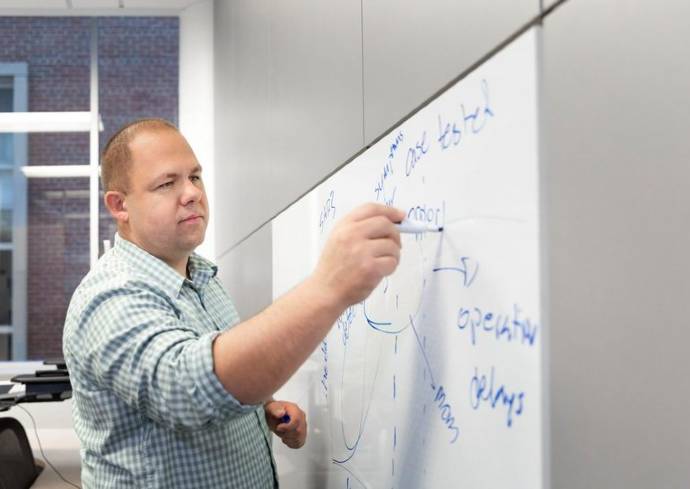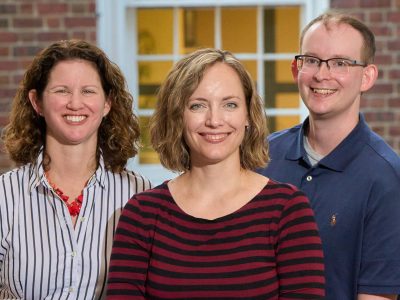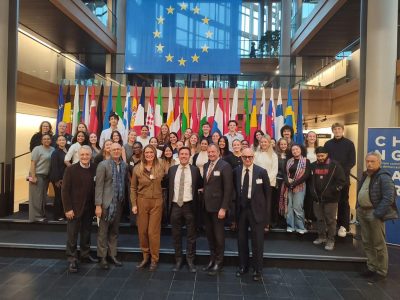Study Led by Public Health Professor David Larsen Says Wastewater Testing Expected to Work for Most Infectious Diseases
Wastewater surveillance of infectious diseases is expected to work for just about every infectious disease that affects humans, including monkeypox and polio. But more research is needed to apply the science for public health benefit, according to a research team led by epidemiologist David Larsen from Syracuse University.
The team’s work published Oct. 13 in the American Journal of Epidemiology examined all peer-reviewed scientific articles of wastewater surveillance published through July 2020. The team identified a variety of pathogens that can be found in wastewater, including almost all infectious diseases that the World Health Organization has classified as a Public Health Emergency of International Concern (PHEIC) such as Ebola virus and Zika virus.
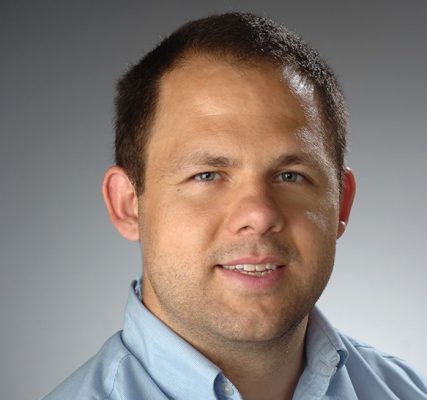
But despite this positive finding, few studies relate what is found in the wastewater to public health and the amount of disease that is circulating.
“Testing the wastewater is only one component of this powerful science,” says Larsen, an associate professor of public health in the Falk College of Sport and Human Dynamics. “Understanding the results and implications for public health is just as challenging. We need interdisciplinary teams working together to maximize the benefit of wastewater-based epidemiology.”
Wastewater-based epidemiology is the science of taking what is found in wastewater and using that information to understand population-level health trends. Most of the articles reviewed by Larsen and his colleagues looked at what they could find in the wastewater and omitted the second step of relating the findings to other measures of population-level health, such as numbers of cases, test positivity, or hospitalizations.
Wastewater-based epidemiology of COVID-19 has enjoyed substantial availability of clinical COVID-19 data, and results from wastewater surveillance are more easily understood in terms of COVID-19 transmission. However, the research team determined that more work is needed to be done for other pathogens, including monkeypox and polio, to increase the utility of wastewater surveillance to benefit public health.
At the outset of COVID in 2020, Larsen led an interdisciplinary team of experts in coordination with the New York Department of Health to create a wastewater surveillance system throughout New York State. Today, the New York State Wastewater Surveillance Network is testing for COVID in at least one wastewater treatment plan in 60 counties, covering a population of more than 15 million. The New York State Wastewater Surveillance Network dashboard provides the most recent statistics regarding the network.
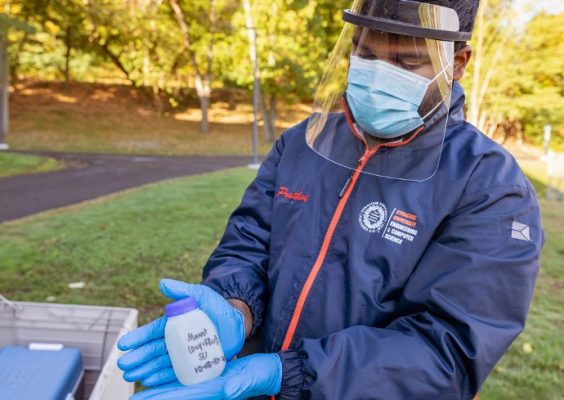
“New York State’s wastewater surveillance network is continuing to provide estimates of COVID-19 transmission and has aided the response to polio and monkeypox,” Larsen says. “We are also working on modeling other seasonal infectious diseases in the future.”
The research team for the American Journal of Epidemiology study included Larsen; Pruthvi Kilaru, a medical student at Des Moines University and former project manager for wastewater surveillance at Syracuse University; Kathryn Anderson, assistant professor of medicine and assistant professor of microbiology and immunology at Upstate Medical Center and the new health commissioner for Onondaga County in New York State; Mary B. Collins, assistant professor of environmental studies at State University of New York College of Environmental Science and Forestry (SUNY ESF); Hyatt Green, assistant professor of environmental biology at SUNY ESF; and Brittany Kmush, associate professor of public health in the Falk College.
